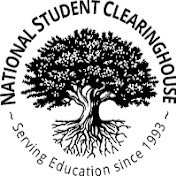State and Federal Systems
The collection of state systems (e.g. California uses CALPADS, CBEDS, CASEMIS, CNIPS, CARS, etc) as well as Federal systems (e.g. Civil Rights Data Collection). The challenge is to get these systems to work with our 3rd party vendor systems and vice-versa.
Know of a great product that isn't yet on this list of California K-12 enterprise systems? Please let us know and we'll create a product page for it. Just drop us a note.
9 results - showing 1 - 9
4666
Product Details
Website
Smarter Balanced is a public agency currently supported by 15 states, the U.S. Virgin Islands, and the Bureau of Indian Education. Through the work of thousands of educators, they created an online assessment system aligned to the Common Core State Standards (CCSS), as well as tools for educators to improve teaching and learning. Smarter Balanced is housed at UCLA’s Graduate School of Education & Information Studies (GSE&IS). TOMS is the abbreviated name for the Test Operations Management System, which CAASPP uses to manage the delivery of the four online tests to students in grades 3,4,5,6,7,8, and 11 each year.
2453
Product Details
California’s new accountability and continuous improvement system provides information about how local educational agencies and schools are meeting the needs of California’s diverse student population based on a concise set of measures.
2665
Product Details
Website
California Longitudinal Pupil Achievement Data Systems (CALPADS) is a data system used to maintain individual level data including student demographics, course data, discipline, assessments, staff assignments, and other data for state and federal reporting.
2463
Product Details
Website
The Civil Rights Data Collection (CRDC) is a biennial (i.e., every other school year) survey required by the U.S. Department of Education’s Office for Civil Rights (OCR). Since 1968, the CRDC has collected data on key education and civil rights issues in our nation's public schools for use by OCR in its enforcement and monitoring efforts regarding equal educational opportunity. The CRDC is also a tool for other Department offices and federal agencies, policymakers and researchers, educators and school officials, and the public to analyze student equity and opportunity.
3260
Product Details
California Child Nutrition Information & Payment System (CNIPS). The CNIPS is the California Department of Education (CDE) Nutrition Services Division's (NSD) Web-based system for administering the federal and state nutrition programs, including the National School Lunch and Breakfast, Food Distribution, Special Milk, Child and Adult Care Food, Summer Food Service, and Seamless Summer Feeding Option Programs.
5750
Product Details
DataQuest is a dynamic system developed and maintained by the California Department of Education (CDE) that provides reports about California’s schools and school districts. It contains a wide variety of information including school performance indicators, student and staff demographics, expulsion, suspension, and truancy information and a variety of test results. Data are presented so that users can easily compare schools, districts and counties.
2275
Product Details
Website
The English Language Proficiency Assessments for California (ELPAC) Web site serves as the portal for resources that a local educational agency will need to administer the ELPAC.
3026
Product Details
The National Student Clearinghouse Research Center is a 501(c)(3) non-profit organization that provides reports for high school districts to accurately analyze the postsecondary success of their high school graduates and make programmatic changes based upon what they learn through their Student Tracker System. The Clearinghouse does not survey students but obtains student data directly from college and university officers responsible for keeping track of enrollments and degrees. All Institutions participate with the Clearinghouse voluntarily. The 3600 institutions typically send to NSC their complete student enrollment list every month so the data is current and constantly updated.
8028
Product Details
Used by California High Schools to submit course syllabi for UC/CSU approval (e.g. completion of the course would satisfy one of the A-G requirements.
9 results - showing 1 - 9









